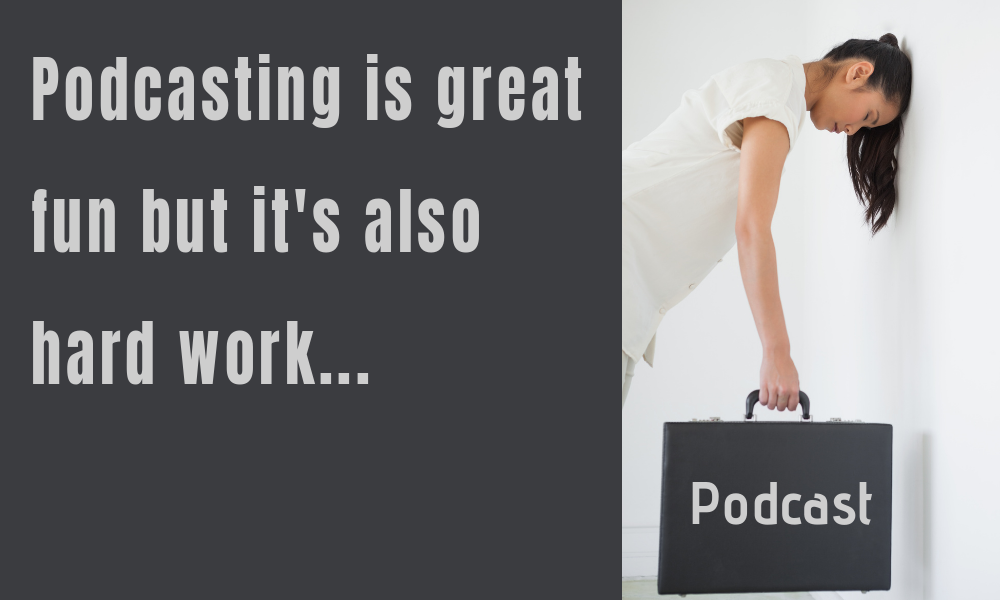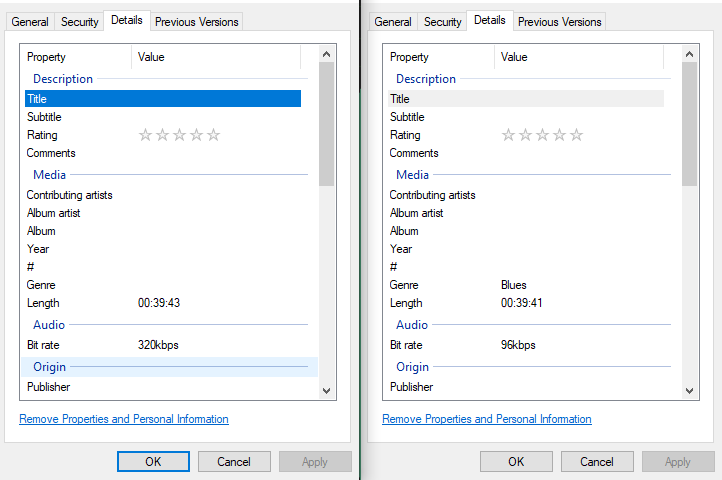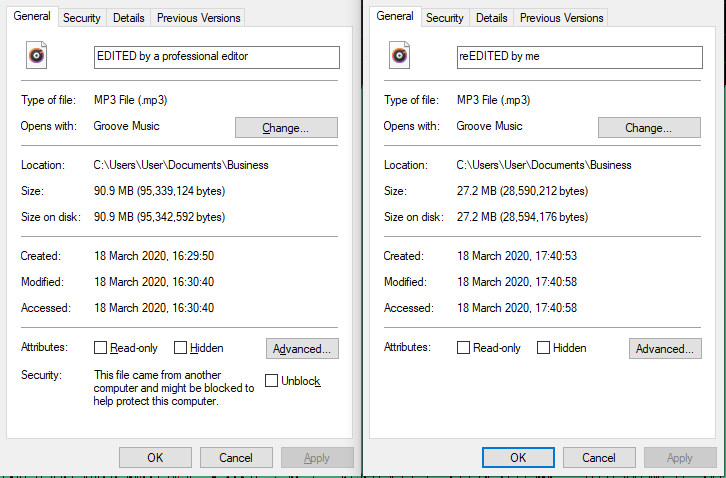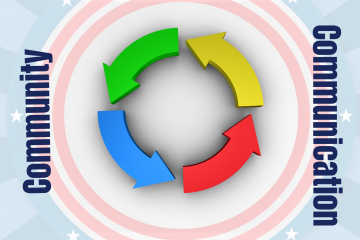
Are you feeling overwhelmed by the amount of work podcasting takes? What can you do to reduce the time commitment?
Read on to find out…
There are lots of ways to claw back your time and I’ll talk about some others in future posts but one of the best ways to reduce your workload is to get someone else to do the editing and mastering of your episodes for you.
Unless you really enjoy editing (like I do), it can be a tedious chore and a time-waster for you.
Just think of the amount of time you could free up for creating more and better content or for getting on with your life or your business.
You can find podcast editors through basic web searching, or on ‘gig’ portals like fiverr.com or upwork.com but probably the most reliable way is to ask podcasters you know for referrals.
However, when you’ve found an editor, how do you know they are going to do a good job?
I asked this question on LinkedIn recently and here are some of the responses.

“If it was me I would like to know the practicalities involved eg how would I get the audio to you, what would the turnaround time be, what tech you would recommend using etc”
Fay Wallis – Career Coach, Executive Coach & Outplacement Specialist | CV Expert | Interview Coaching | Career Change Coaching
What Fay says is important because those seemingly simple practicalities can scupper the relationship you have with your editor. If you keep having to chase and clarify how to work together, you’ll never get anything done and It will be really frustrating.

“What was helpful for me when I hired you was that you were able to give me a list of shows you’ve already worked on, which meant I could get a sense of your editing style and genre. I wanted to know that you could produce the kind of shows I wanted to have myself. I also want to make sure I don’t hire someone who is running their first rodeo, so to speak 🙂 “
Karen Skidmore, The Business Catalyst. Championing economic potential of menopausal women. Speaker. Podcaster.
So, relevant experience and expertise are important to Karen. If your editor has never worked on podcasts before, then they are unlikely to know the specific challenges and requirements of the genre. They might be a brilliant audio engineer and experienced at editing and mixing music but that doesn’t necessarily transfer directly into podcast editing.

“The logistics and practicalities of working with you. Also whether you’re going to support me in getting the best results by providing feedback on how I could improve my end if needed.”
Helen (Nelson) Harding, Coach & Mentor to Complementary Practitioners, Chartered Marketer, Advanced Lightning Process Practitioner
Another vote for the practicalities from Helen but she also stresses the need for partnership. Do you want your editor just to deal with the MP3 files or would it be better if they used their experience of podcasting to help you improve your show – technically and in format or ‘treatment’?
So, before you agree to pay an editor any money, it’s best to ask some critical questions…and then look carefully at their answers. In legal circles, this is called ‘Due Diligence’ – you’ll want to make sure you’re going to choose the right partner for your show.
You can take inspiration from the insights above which are all very sensible indeed but I’ve also put together some suggested questions for you below which might help you to find out whether the editor you are speaking to ‘knows their onions,’ technically and is able to provide a sustainable service.
Feel free to use the questions in your own Due Diligence – I hope they help!
Attributes to look for in a podcast editor
Your podcast editor:
- has their own podcast
- has several years’ experience in editing podcasts
- has experience of producing similar kinds of shows to yours
- is able to turn round episodes in a few days at most
- is keen to work with you to improve your show, not just do the editing
Audio file requirements
Whether or not you are used to the deep technicalities of podcast files yourself, it’s really important to make sure your editor knows how to optimise your MP3s. Otherwise you can waste space on your media host (and therefore money!) or store up problems for yourself in the future.
Don’t worry if you don’t fully understand the terminology etc. – you should only worry if your editor doesn’t understand them!
Question: What kind of audio files should I send you?
Your editor should understand the concepts of working from the highest quality source files. WAV (and some other) files are ‘lossless’ which means that, however you edit them, the quality should remain as good as the original recording. If you edit ‘lossy’ files like MP3s, each time you save a version, the quality will decrease.
What to look for in an answer:
- Great – Always send me WAV – I only edit in lossless format
- Fine – You can send me WAV, AIFF or FLAC
- Not great – Send me high quality MP3 (>=128Kbps)
- Get worried – Send me low quality MP3 (<96Kbps)
Question: What Kbps would you master my MP3s in and would you recommend Stereo or Mono?
This is really important. The Kbps of your final MP3 files (after ‘mastering’) indicates the quality of the sound you will get. Choose too high a rate and you will waste space (and therefore potentially money) in your media hosting account. Choosing too low a rate for the kind of audio you produce will mean disappointing quality.
If you are producing a podcast which is mainly dialogue, you don’t need a stereo MP3 unless the music you do have is really important to you. Neither do you need to have a particularly high Kbps. The BBC used to produce their spoken word podcasts (before things changed with BBC Sounds) at 64Kbps mono. So if your editor recommends 128Kbps stereo for your mainly-talk show, you would be right to be a bit concerned.
Audible insist on 192Kbps for audiobooks but if you listen to the same file at 192Kbps and 96Kbps you’d be hard pressed to notice a great deal of difference.
If you have a lot of stereo music to share in your episodes, then you might want to master your MP3s in stereo but it will take up a lot more room on your media host.
I master my own MP3s and those of my clients at 96Kbps mono but that’s not the only way it can be done acceptably.
What to look for in an answer:
- Great – What kind of show you are doing? I tailor my mastering to suit
- Fine – I just master at 96Kbps and mono if the show is mainly dialogue
- Not great – I always uses the same, high Kbps but in mono for dialogue shows
- Get worried – I always master at 196Kbps stereo, regardless of the type of show
Case study
I downloaded the latest episode from a high-profile podcast which I know is edited by a ‘professional’. Then I re-mastered the audio. Here’s what happened:

Question: What should I do about LUFS (or LKFS) loudness standards?
Now, this is a critical question and will definitely help you to gauge whether your editor knows the podcasting domain. LUFS (or LKFS) is the unit of measurement used for ‘loudness’. Radio, TV and now podcasts use a standard ‘loudness’ so that when you go from programme to programme, show to show, episode to episode you don’t have to alter the volume of your device.
It can be inconvenient to have to ‘ride the volume knob’ and maybe even dangerous if it distracts you from driving, for example.
[Actually the podcasting ‘standard’ is only an industry best practice at the moment but you’ll want to use best practices in your show won’t you?]
So your editor should know about LUFS and be able to reassure you that they take notice of the standard when they master your MP3s.
It does get a bit confusing and technical but basically the podcasting standard (which is different to radio and TV) is -16LUFS. If an editor quotes -19LUFS for mono, that’s okay as well.
What to look for in an answer:
- Great – I master to -16 LUFS (or -19 LUFS for mono and -16LUFS for stereo)
- Fine – I master to -16 LUFS
- Not great – I master to -19 LUFS only, whether the file is mono or stereo
- Get worried – What are LUFS?
Question: Will you add ID3 tags for me?
ID3 tags contain data about your MP3 file, also known as ‘metadata’ which is embedded into your MP3. If you’ve ever used the desktop iTunes software or listened to a podcast episode in your car through Bluetooth, you will have seen ID3 tags. The title of the song, the author, the album etc. are all included via ID3 tags.
Examples of podcast data held in ID3 tags could include:
- your episode image (as opposed to your show cover art)
- the title of your episode
- the episode number
- your show notes
- your name as author of the episode
You don’t have to use any ID3 tags at all in your MP3s but the vast majority of shows do. Also, Apple specify certain tags so you wouldn’t want to ignore the requirements of the largest podcast distribution platform of all.
Different podcast apps use your ID3 tags in different ways and as long as you have a reputable media host, you will be able to add your ID3 tags when you upload the MP3 file. However, they can also be added using 3rd party software before you upload.
What to look for in an answer:
- Great – I’ll add whatever ID3 tags you like and definitely the ones Apple and other apps require
- Fine – I’ll add some basic ID3 tags when I upload to your media host
- Not great – I’m not sure ID3 tags are needed any more
- Get worried – What are ID3 tags?
Case Study
I looked at the ID3 tags of the same MP3 file I mentioned above. Or rather, I tried to. There weren’t any.
General questions
Question: How long will it take?
Podcast editing is serious work – it’s detailed, intensive and time-consuming. You can’t do anything else at the same time and you need experience, otherwise it can take even longer and be exhausting.
So you need to give your editor as much time as possible. Obviously, if you pile on the time pressure, mistakes are more likely.
A rule of thumb for podcast production is ‘4-1’. Every one minute of finished audio takes about 4 minutes to produce. So a 20-minute episode takes about 80 minutes to create. This could include more than just the editing but even a very experienced editor might only be able to work at 2-1, assuming the raw recordings are decent and the editing isn’t too complex.
What to look for in an answer:
- Great – I’ll normally get the completed MP3 file back to you in around 2-3 days but I can turn things around more quickly if you really need it
- Fine – It’ll usually take me about 3 days from receiving your raw files
- Not great – I work on a weekly turnaround
- Get worried – I’m not sure, I’ll let you know
Question: What do you edit?
Podcast editing can be like the proverbial piece of string – it can go on indefinitely.
What to look for in an answer:
However, a reasonable set of expectations might include the following (some only if they are necessary):
- Noise reduction
- Removal of plosives (loud, explosive ‘p’s and ‘b’s etc.)
- Insertion of intro and outro music/voiceover
- Volume levelling
- Compression (making everything sound loud enough)
- De-ess (toning down of loud ‘s’ sounds)
- Mastering the MP3 file to the standards mentioned above
Question: How much will it cost?
The million dollar question (hopefully not!) In a lot of ways, you will get what you pay for in podcast editing. If you engage someone with little experience and expertise on a ‘gig’ platform, you can’t really complain about the service level and quality of the work.
Professional, experienced editors will cost you a little more but you are much more likely to be delighted with the results.
What to look for in an answer:
A well-respected podcast editing company has these costs on their website:
Up to 20 Minutes – £29.99
Up to 40 Minutes – £39.99
Up to 60 Minutes – £59.99
You can also purchase bundles of episodes which works out to be cheaper than individual episodes.
If the rates you are quoted are very different to these, you should ask why – there may be legitimate reasons.
If you are ready to start or improve your own podcast, you can sign up for a Power Hour with me here.
I look forward to working with you!


0 Comments